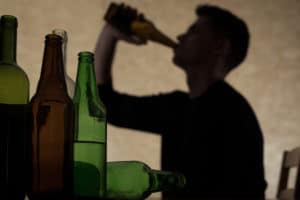Intoxication may only be a defense if it is involuntary.
In popular culture, you may have heard people claim that they can’t be held responsible for their actions because they were drunk or otherwise under the influence. But in the real world — and in the courtroom — that defense is much harder to use As a general rule, being intoxicated by drugs or alcohol is generally not a defense to crimes. However, there is an exception to this rule: when you are involuntarily intoxicated. So what exactly is involuntary intoxication — and how can it be used as a defense?
Involuntary intoxication is whenever a person becomes intoxicated or drunk through no fault of their own. They may have taken a medication that had unexpected side effects, or they may have been drugged without their knowledge. This is a relatively uncommon occurrence; in most cases, when people are intoxicated, it is because they chose to have a drink or take drugs. However, depending on the type of medications that a person takes or the medical conditions that a person has, it is possible. Interactions between medications can cause involuntary intoxication. Alternatively, another person could force or trick you into taking something that caused you to be intoxicated.
Under California law, the legal defense of involuntary intoxication is a complete defense to a crime. If you can prove that you were involuntarily intoxicated at the time that you committed a crime, then you cannot be found guilty of the crime. That is because under the California Penal Code, a criminal defendant cannot be found guilty of an act if he or she was unconscious when committing it. If a person was unconscious (i.e., not aware of what they were doing) due to severe intoxication, and he or she did not choose to become intoxicated, that is a defense to a crime.
The classic case of involuntary intoxication involves a situation where somebody spikes a drink with alcohol or drugs. The person consumes the food or drink, and then starts acting intoxicated as a result. Perhaps the person steals a car, or assaults another person. If he or she can prove that he was involuntarily intoxicated — that someone spiked his food or drink — then he will likely be found not guilty of the crime. As a Riverside criminal defense lawyer will explain, the initial burden of proof is on the defendant to show that he was not acting consciously because he was under the influence of alcohol or drugs at the time that the crime was committed, and that he or she did not take the alcohol or drugs voluntarily. The burden would then shift to the prosecutor to prove beyond a reasonable doubt that the defendant was acting consciously when the crime was committed.
If you have been charged with a crime, involuntary intoxication may be a defense in certain cases. However, if you consumed drugs or alcohol voluntarily, it is much harder to use the defense of voluntary intoxication. An experienced Riverside criminal defense lawyer can help you determine if you have a viable involuntary intoxication defense based on the facts of your case. Contact the Chambers Law Firm today to schedule a free initial consultation and learn more about how we can assist you if you have been charged with a crime in Riverside or the surrounding areas.





